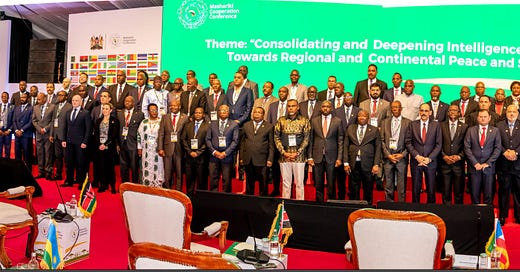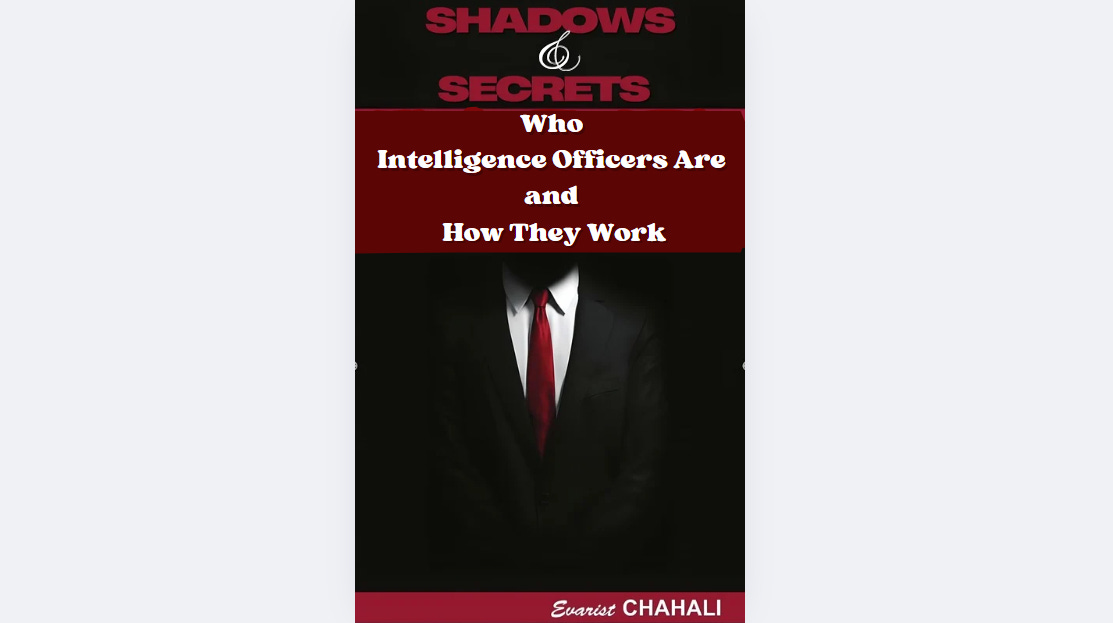Mashariki Cooperation Conference 2025: Over 60 Intelligence and Security Agencies From Across Africa and Beyond Gather in Naivasha, Kenya
The Mashariki Cooperation Conference 2025 (MCC 2025), held in Naivasha, Kenya, marked a significant milestone in African regional intelligence collaboration. Bringing together over 60 intelligence and security agencies from across the continent and beyond, the conference provided a robust platform for advancing African intelligence cooperation, addressing modern security threats, and fostering strategic regional alliances. With high-profile attendees and a forward-thinking agenda, MCC 2025 reinforced Africa's commitment to regional security collaboration and combating transnational threats such as terrorism, cybercrime, and digital misinformation.
Background and Objectives
The Mashariki Cooperation Conference was initiated to create a continental platform for intelligence professionals to collaborate on key security concerns. With a focus on intelligence sharing, capacity building, and joint operations, MCC has become a cornerstone of African regional security strategy. The 2025 conference aimed to deepen previous commitments while expanding the scope of cooperation to address emerging digital-age challenges.
Objectives of MCC 2025 included:
Strengthening intelligence-sharing frameworks
Promoting joint counterterrorism strategies
Enhancing cybersecurity readiness
Combating misinformation and disinformation
Integrating artificial intelligence into intelligence workflows
Theme of the 2025 Conference
The conference was convened under the theme: "Consolidating and Deepening our Intelligence Cooperation Towards Regional and Continental Peace and Stability." This theme reflected the urgency of reinforcing collaborative mechanisms and building lasting peace through united intelligence efforts. The sessions and side meetings focused on actionable strategies for long-term stability in Africa.
Keynote Addresses and High-Profile Attendees
MCC 2025 attracted a distinguished array of leaders and experts from across Africa and the international intelligence community. Among the most notable attendees were:
President William Ruto of Kenya
Noordin Haji, Director General of Kenya's National Intelligence Service (NIS)
Ibrahim Kalin, Chief of the Turkish National Intelligence Organization (MIT)
Abdullahi Mohamed Ali (Sanbalolshe), Director of Somalia’s National Intelligence and Security Agency (NISA)
Dr. Workneh Gebeyehu, Executive Secretary of the Intergovernmental Authority on Development (IGAD)
Kipchumba Murkomen, Kenya’s Cabinet Secretary for Interior and National Administration
Musalia Mudavadi, Kenya’s Prime Cabinet Secretary
These individuals played pivotal roles in shaping the discourse on regional security and reinforcing commitments to multilateral cooperation.
AD
Available as ebook HERE
Major Topics Discussed
Regional Intelligence Cooperation
The core focus of MCC 2025 was on enhancing intelligence collaboration among African nations. Leaders stressed the need for regular communication, harmonized intelligence protocols, and trust-based information sharing to ensure rapid responses to cross-border threats.
Counterterrorism Strategies
A significant portion of the conference was dedicated to evaluating counterterrorism efforts against groups such as Al-Shabaab and ISIS. Attendees discussed the importance of unified regional strategies, improved border surveillance, and intelligence-led operations to disrupt terror networks.
Cybersecurity and Digital Threats
Delegates highlighted the rise in cyber threats, including state-sponsored hacking and cybercriminal syndicates. Strengthening digital infrastructure, enhancing cyber forensics capabilities, and promoting regional cybersecurity frameworks were identified as top priorities.
Misinformation and Disinformation
The threat posed by fake news and malicious online content was a recurring theme. Intelligence chiefs warned of the destabilizing effect of digital misinformation on democratic institutions and social cohesion. The need for digital literacy campaigns and closer collaboration with technology platforms was emphasized.
Artificial Intelligence in Intelligence Work
There was a strong consensus on the need to embrace AI in modern intelligence operations. Discussions covered predictive analytics, AI-powered surveillance, automated data processing, and deepfake detection. African nations were urged to invest in indigenous AI solutions tailored to their security needs.
Strategic Importance of Naivasha and Kenya’s Role
Naivasha was strategically chosen for its secure and serene setting, ideal for confidential high-level discussions. Kenya’s role as host reinforced its leadership in regional security matters. The conference also highlighted Kenya’s commitment to providing platforms for African-driven security solutions.
Kenya’s National Intelligence Service, under Noordin Haji, played a leading role in organizing and facilitating the conference, showcasing Kenya’s capability to convene stakeholders and lead strategic dialogue on continental security priorities.
Key Statements and Implications
President Ruto emphasized the role of accurate information in national security, calling for proactive efforts to counter fake news and online radicalization. He highlighted the importance of digital literacy and transparency in public communication.
Noordin Haji warned of an emerging "war against truth," referring to the use of AI in generating convincing disinformation. His call for a united front against digital deception resonated with other intelligence chiefs, reinforcing the urgency of coordinated action.
Ibrahim Kalin offered insights into Türkiye’s experience with cyber-intelligence and counterterrorism, encouraging deeper partnerships between African and international agencies.
Dr. Workneh Gebeyehu advocated for institutionalized intelligence-sharing mechanisms within IGAD, emphasizing the need for sustained multilateral engagement.
Outcomes and Resolutions
Though no formal treaty was announced, the conference produced a set of informal resolutions and strategic commitments:
Agreement on expanding real-time intelligence-sharing channels
Commitment to building joint task forces for counterterrorism
Development of AI and cybersecurity training programs
Plans to institutionalize the conference as an annual event
Potential formation of a permanent working group or secretariat
These outcomes signal a move towards a more integrated, resilient, adaptive, and technologically proficient African intelligence community.
Future Prospects for African Intelligence Cooperation
The Mashariki Cooperation Conference 2025 has set a new benchmark for intelligence collaboration in Africa. From now on, participants are expected to:
Launch inter-agency joint training programs
Create secure communication networks among intelligence agencies
Formalize cooperation through IGAD or AU-supported frameworks
Hold follow-up technical workshops and simulation exercises
Expand public-private partnerships to develop AI-driven security tools
The momentum generated in Naivasha is expected to influence regional security policies, foster deeper ties among African intelligence agencies, and pave the way for a stronger, more united front against emerging threats.
Conclusion
The Mashariki Cooperation Conference 2025 was a landmark event in the evolution of African intelligence cooperation. Through high-level participation, in-depth discussions, and actionable commitments, the conference advanced the continent’s collective ability to manage and mitigate security threats. As Africa faces an increasingly complex security environment, forums like MCC 2025 demonstrate the continent’s resolve to harness innovation, build trust, and work together for peace and stability.
SOURCE: OSINT





